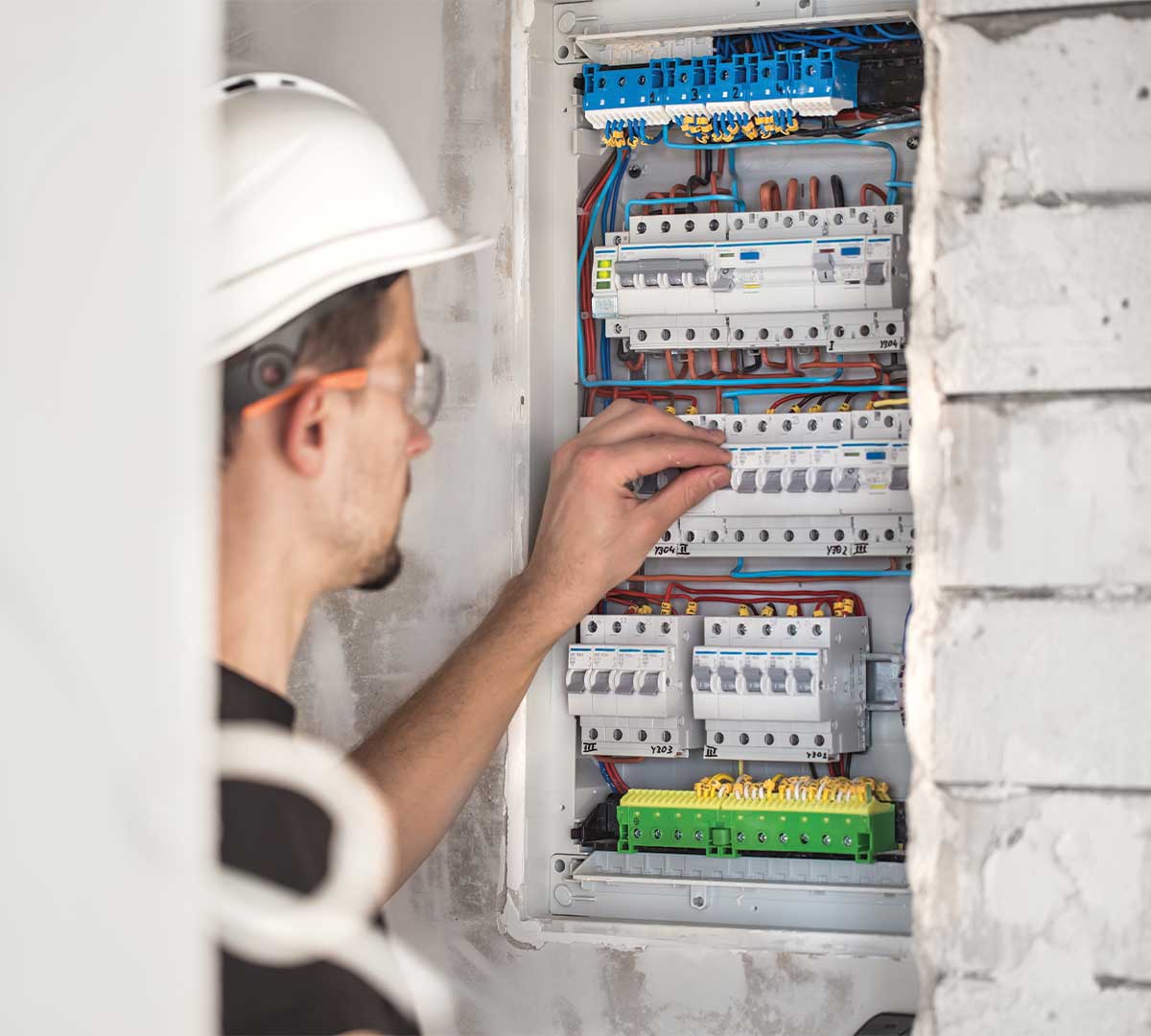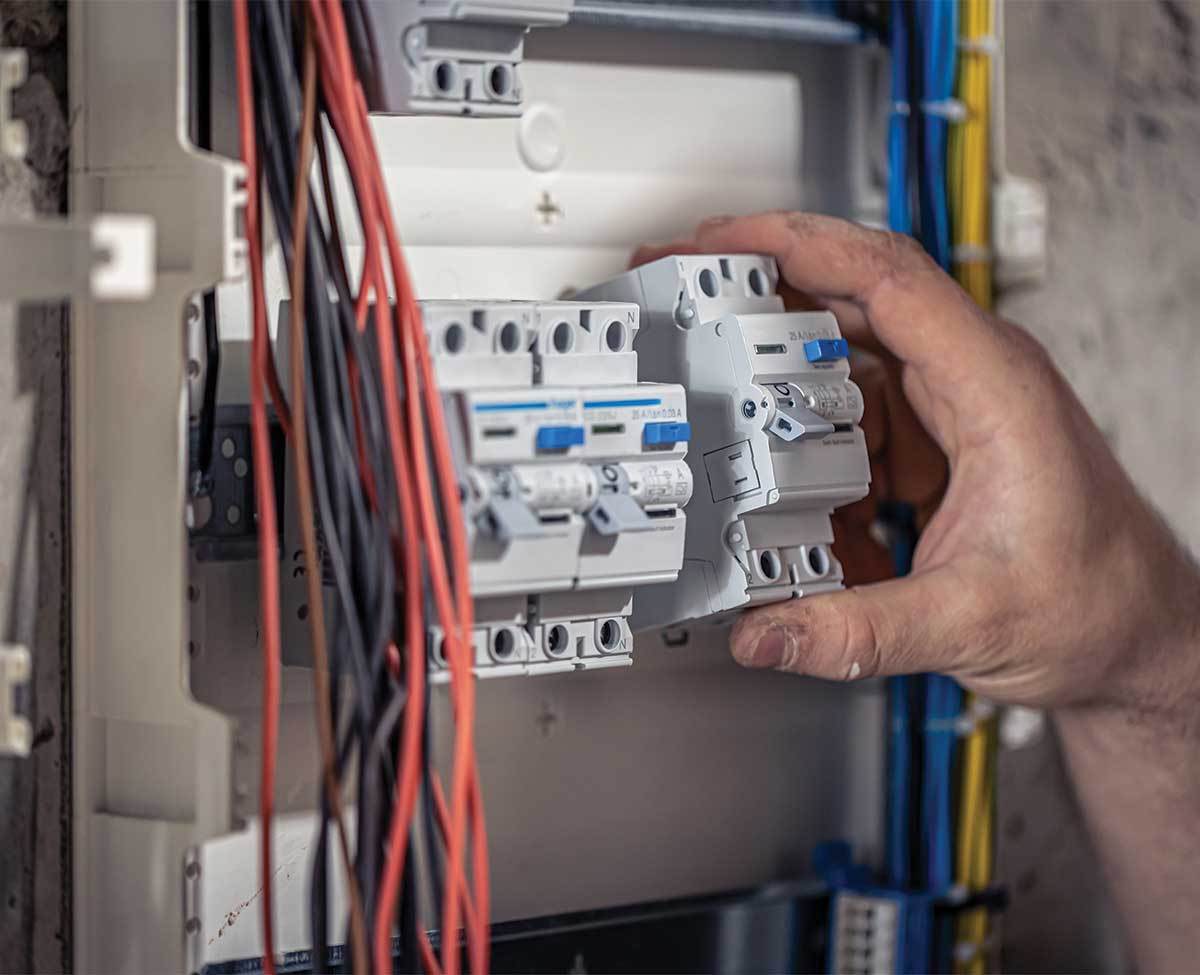Breakers and Fuses
Breakers and Fuses: What Homeowners Need to Know
When the circuit breaker trips, it’s not just a minor inconvenience—it’s your home’s way of saying something isn’t right. Understanding the importance of breakers and fuses is crucial for protecting your home from electrical hazards like fire or electrocution. Whether you’re dealing with a blown fuse, a faulty breaker, or simply want to upgrade an old panel, Expert Electric is here to help.

What Are Breakers and Fuses?
Both breakers and fuses serve the same essential purpose: to interrupt electrical flow when the current exceeds safe levels. They protect your wiring, appliances, and, more importantly, your family.
Fuses contain a metal strip that melts when the current exceeds a specific limit, stopping the electrical flow. Once blown, a fuse must be replaced.
Circuit breakers use a bimetallic strip that bends when overheated, tripping a spring-loaded mechanism that cuts off the circuit. Breakers can be reset, making them a reusable safety feature.
Key Differences:
| Feature | Fuse | Circuit Breaker |
|---|---|---|
| Reusability | One-time use | Can be reset multiple times |
| Response Time | Fast | Slightly slower |
| Maintenance | Needs replacement | Can be reset if tripped |
| Modern Application | Rare in modern homes | Standard in all new homes |
How to Reset a Circuit Breaker
If a breaker trips, follow these steps:
- Turn off all lights and unplug appliances in the affected area.
- Open your electrical panel.
- Locate the tripped breaker—it will be in a middle or “off” position.
- Move the breaker fully to the “off” position, then flip it back to “on.”
- If the breaker trips again, you could be facing an overload, short circuit, or faulty wiring.
Pro Tip: Avoid repeated resets. This can damage the breaker over time and signal a deeper issue. If you’re unsure, call Expert Electric.
Why Does My Breaker Keep Tripping?
Your breaker may trip due to:
- Overloaded circuits (too many appliances)
- Damaged cords or outlets
- Short circuits
- Faulty electrical components
- Outdated or insufficient wiring
Rather than risking your safety, let Expert Electric assess the issue. We can upgrade your system or add additional circuits to meet your home’s power demands safely.

The Dangers of Improper Breaker Sizing
It may seem like a good idea to install a larger fuse or breaker to avoid constant tripping—but doing so is dangerous and illegal.
- A #14 wire supports only 15 amps
- A #12 wire can handle 20 amps
Using a 30-amp breaker on a 15-amp wire can cause overheating, melting insulation, and even electrical fires.
Expert Advice: Breakers and fuses should always match the rated capacity of the wiring they protect. If your circuits are overloaded, the solution is to add new circuits, not increase amperage.
Fuse Boxes vs. Breaker Panels
Older homes often have fuse boxes with fewer branch circuits, making them more susceptible to overload. Modern breaker panels typically support 32–40 branch circuits, allowing for safer and more efficient electrical distribution.
Why Upgrade to a Breaker Panel?
- Easier to reset after a trip
- No need to keep spare fuses
- Safer and more reliable
- Required by modern electrical codes
- Increases your home’s value
Selling your home? Replacing an old fuse box with a breaker panel is a big plus for home inspectors and buyers.
Breakers and Fuses FAQs
Q: What’s the difference between a breaker and a fuse?
A: A fuse melts when overloaded and must be replaced, while a breaker trips and can be reset. Both protect your home from electrical damage.
Q: Why does my circuit breaker keep tripping?
A: Common reasons include circuit overloads, faulty wiring, damaged appliances, or short circuits. If it happens frequently, contact an electrician.
Q: Can I use a larger breaker to stop it from tripping?
A: No. Using a higher-rated breaker than your wiring can handle is dangerous and may cause a fire. Always match breaker size to the wire gauge.
Q: Should I replace my old fuse panel?
A: Yes. Breaker panels are safer, easier to manage, and preferred by home inspectors. Upgrading also increases home value and electrical capacity.
Q: How do I reset a tripped circuit breaker?
A: Turn off devices in the affected area, locate the tripped breaker, switch it fully to “off,” then back to “on.” If it keeps tripping, call an electrician.
When to Call an Electrician
If your home still has a fuse box or you’re constantly resetting breakers, it’s time to consider a professional electrical assessment.
At Expert Electric, we offer:
- Circuit panel upgrades
- Troubleshooting for tripping breakers
- Additional circuits installation
- Wiring assessments and safety checks
Call us today to schedule a service and get peace of mind knowing your electrical system is safe and up to code.
Trust Expert Electric for Your Breakers and Fuses Needs
At Expert Electric, we’ve helped countless homeowners upgrade their electrical panels, troubleshoot persistent breaker trips, and stay safe from electrical hazards. With certified electricians and top-quality service, we make sure your breakers and fuses are doing their job—protecting your home and loved ones.
Book your appointment today or contact us here to get started.
